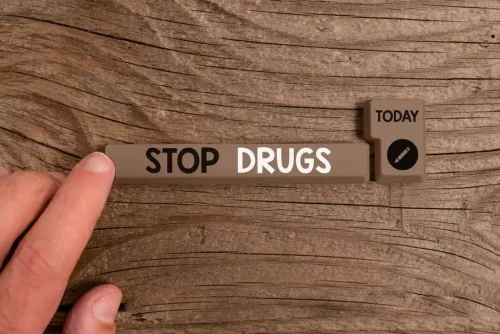
Prioritizing self-care is crucial for nurturing motivation and overall wellness. Engaging in activities that support emotional and mental well-being can help recharge your energy and build resilience. Physical exercise, mindfulness practices, hobbies, and rest are all ways to take care of yourself. Making time for self-care shows self-compassion and emphasizes the importance of your health, which can boost your drive to stay on track toward a sober lifestyle.
- Setting clear goals related to the purpose of recovery provides a roadmap for progress.
- While extrinsic motivation can provide initial motivation and reinforcement, intrinsic motivation is essential for sustaining long-term recovery and fostering personal growth.
- Researchers have studied the experiences of many people who have recovered from substance use and identified key features of the recovery process.
The Best Addiction Recovery Movies
It is often a long and bumpy path, and relapse is nearly inevitable—but that doesn’t spell the end of recovery. Overall, overcoming challenges and triggers in recovery needs perseverance, self-reflection, a strong support system, effective coping strategies, resilience building, and learning from setbacks. Incorporate these in the journey towards sobriety; then, obstacles can be overcome. The power of positive thinking during recovery cannot be underestimated. It serves as a driving force that empowers individuals to overcome challenges and maintain sobriety.
When Times Get Tough

• Connection—being in touch with others who believe in and support recovery, and actively seeking help from others who have experienced similar difficulties. Nevertheless, it is vital to recognize the changing nature of motivation in recovery. Motivation ebbs and flows over time and recovery motivation may differ in strength depending on the circumstances. To combat these feelings, try to remove yourself from the triggering situation. If a song is playing, turn the radio off, if you get a text from an old friend with whom you used to use substances, consider blocking the number.
Establish a Strong Support System
Engaging in aftercare services is a critical component to recovery because 40 to 60 percent of people who complete treatment experience relapse. For many individuals with drug or alcohol problems, motivational factors such as religion can inspire them to change their lives and avoid substance use. Finding motivation to achieve and maintain abstinence from drugs and alcohol is a critical first step to getting sober. The inspiration to live a sober lifestyle can come from loved ones, from people in similar situations or simply from thinking about the consequences of substance use. By taking the leap into recovery, you have already made the hardest move. In many cases of substance use disorders, the abuse prolongs because of an inability to see a problem and to accept responsibility for any bad actions that come from this disorder.
Staying Motivated in Recovery and Overcoming Obstacles
But abusing drugs or alcohol over an extended period can cause more severe health consequences, including cardiovascular, respiratory and psychological problems. Substance abuse can also lead to violence, trauma, injury or diseases such as HIV. Support group meetings such as Alcoholics Anonymous connect people who deal with behavioral problems caused by addiction. During meetings, participants share stories of their successes and failures during recovery. Listening to these testimonials and abiding by 12-step principles can inspire people to achieve or sustain sobriety. It is no secret that choosing to embark on the path of recovery is not easy.
If you want connection, you will need to do something about the addiction. The key here is that on the level of the brain, the natural need for connection is one of the few things that has a biological pull equal, or nearly so, to the addiction. By the way, this is also why fellowship is so important in recovery. Once again, the choice has to be crystal clear and the consequences fully credible. Otherwise the addicted person will choose to keep the addiction and hope that others won’t stick to their word. Threats don’t work, both because they are so often empty, and because they pose a challenge.
- This connection creates a feeling of acceptance and supports intrinsic motivation to stay sober.
- Learning more about addiction and its impacts not only increases understanding but also gives hope for change.
- Generate a to-do list of small, specific action steps that will lead you in the direction of your overall goal.
- Rewards can be anything enjoyable, or activities that bring satisfaction and fulfillment.
- When it comes to recovery, motivation can be seen as determination.
- By helping others into recovery, you’re reminded of your own progress, shake off any complacency in your sobriety, stay accountable, and find happiness and fulfillment.
Sober support communities offer resources such as success stories, inspiring quotes, and shared experiences. Being of service to others in recovery can also foster a sense of purpose and strengthen one’s commitment to sobriety. The significance of motivation in addiction recovery is immense. It serves as a driving force, pushing individuals to their recovery path. It’s the inner urge and determination to beat addiction and make life changes.

By keeping a journal, blog, or video-blog, you can more easily see the progress and growth of your journey, making staying motivated an easier task. You might even have a desire to share your writings or videos with others who are struggling (—which would be service work!). Resources and treatment options have been https://ecosoberhouse.com/article/10-major-physical-signs-of-alcoholism-to-watch-out-for/ developed to address personalized needs in addiction recovery. They provide the necessary tools, support, and guidance to achieve lasting sobriety. Inspiring quotes and engaging with the sober support community can motivate. Being of service to others in recovery can provide purpose and reinforce commitment.
Leave a Reply